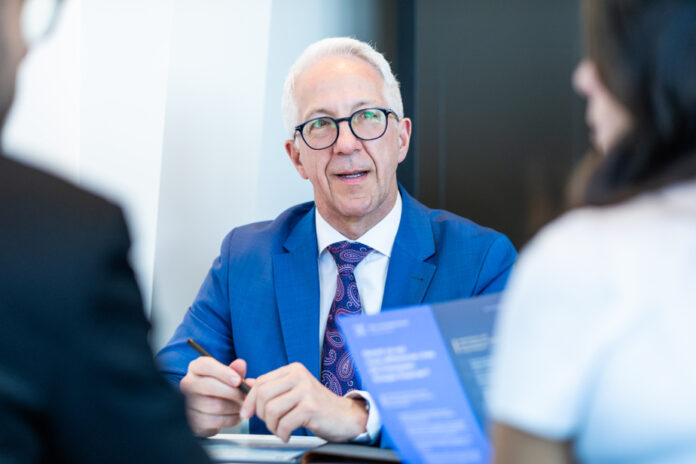It’s the same with your wealth management advisor as with your dentist or your hairdresser: you don’t take whoever comes first. The relationship of trust is essential. “You have to find your fit, someone you are ready to confide in,” says Carl Thibeault, senior vice-president Quebec and Atlantic at IG Wealth Management.
The professional suggests not hesitating to meet a second, or even a third, before making your choice. Asking questions is also helpful. For example, we can ask about their management fees, their experience, their approach or the frequency of meetings.
With his independent advisor hat firmly placed on his head, Sylvain De Champlain, president of De Champlain Financial Group, notes that there is a “huge” turnover rate in financial institutions.
“The investor must adapt to a new advisor every year, even as wealth management evolves over time,” he says. In particular, there are decisions to be made depending on the ups and downs of life.
Both experts agree that we frequently skip steps to arrive at the choice of financial products. “Too often, products predominate to the detriment of listening to customer needs,” laments Sylvain De Champlain. We limit ourselves to the investor profile. Yet, products are the tool to achieve the goals. »
This emphasizes that you need to familiarize yourself with the client’s goals and dreams, and eliminate their concerns first. “There are so many products offered today, it’s difficult for an investor to navigate. We only know two or three years later if we made the right choice. »
Unlike advisors from a financial institution, the independent has access to practically everything that exists on the market. He is not limited to what his employer offers. “It’s an asset,” believes Sylvain De Champlain.
The more the advisor knows his client, the more he will be able to guide him correctly. Hence the advantage of building a long-term relationship.
Management fees vary from one bank to another. “It can also change depending on the assets or the type of investments held,” explains Carl Thibeault. There may also be charges within a product or fees for the service offered. You need to check how it works, what’s included and what it includes. »
Sylvain De Champlain adds that we talk too little about net return.
He also compares this situation to hockey. “Sidney Crosby costs more in salary, but he’s going to generate more goals than everyone else. It has value,” he illustrates.
Taxation certainly represents a blind spot in wealth management, according to the two speakers.
“We have one of the most complex tax systems in the world in Quebec,” maintains Carl Thibeault. We risk losing a significant portion of the yield if we do not take this into account. »
The expert points out that the tax aspect can tip the scales towards one strategy rather than another, whether it is a registered retirement savings plan (RRSP) or a tax-free savings account for purchase of a first property (CELIAPP).
“We are talking about thousands of dollars that can be saved per year by making the right decisions regarding the tax aspect,” adds Sylvain De Champlain. He is particularly distressed to see tax-free savings accounts (TFSAs) invested in a guaranteed investment certificate (GIC) at 1.5% interest.
“It’s an aberration. The advantage of the TFSA is that it is not taxed when the money is there and the day you withdraw it. In comparison, the growth profile had returns of 12% last quarter. »
Investment management is only one part of wealth management, as Carl Thibeault points out. “You have to think about other elements, like inheritance or insurance. » Needs analysis, once again, is essential here.
Common-law spouses, who are numerous in Quebec, are not protected if there is no will in place, recalls Sylvain De Champlain.
“The network of experts is another element to consider,” he thinks. Is the chosen advisor able to recommend his client to a notary or a tax specialist? He must not only suggest that he put $5,000 in an RRSP, he must be able to guide him to other specialists if necessary. »















